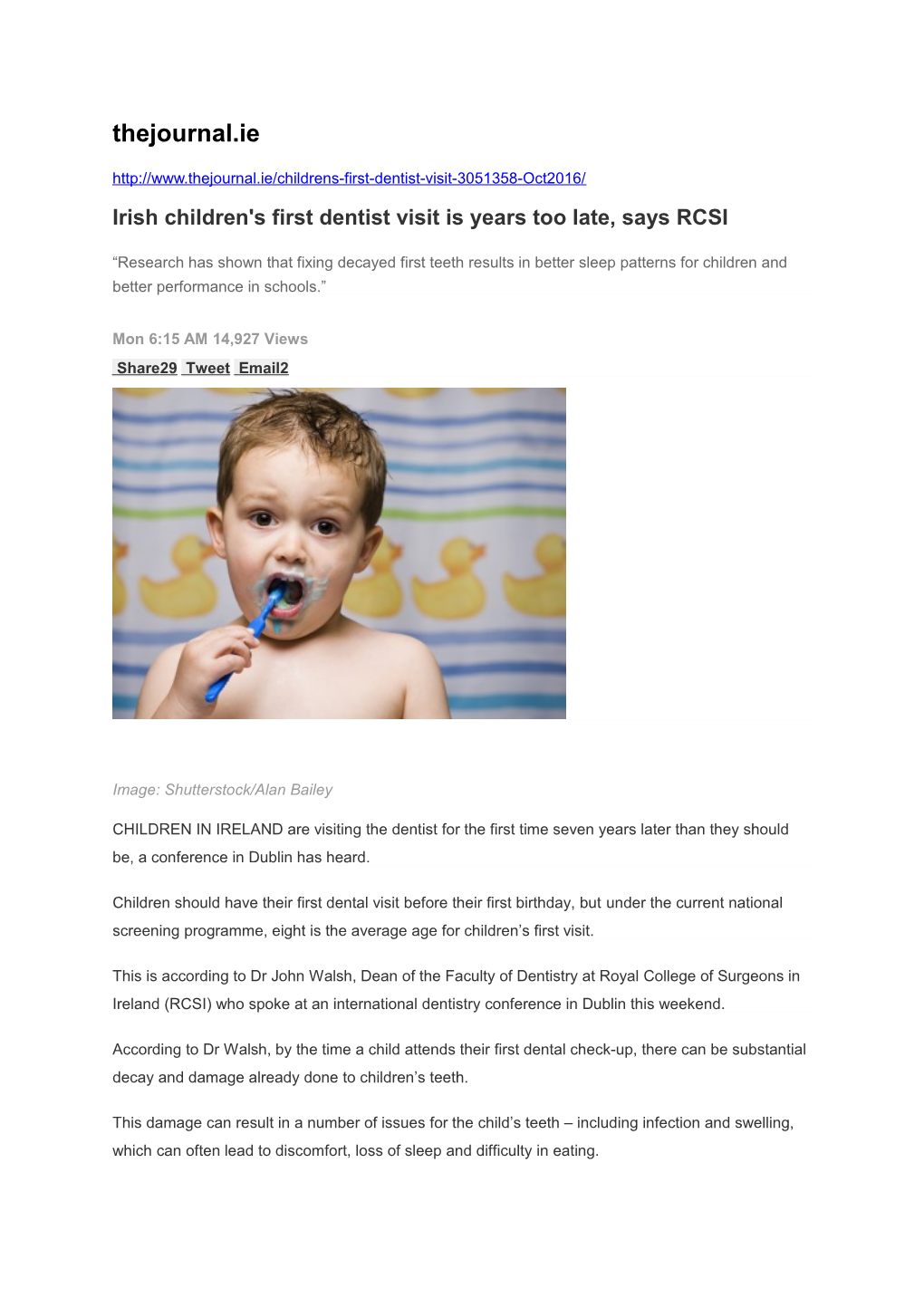thejournal.ie
Irish children's first dentist visit is years too late, says RCSI
“Research has shown that fixing decayed first teeth results in better sleep patterns for children and better performance in schools.”
Mon 6:15 AM14,927 Views
Share29TweetEmail2
Paediatric dentistry was the theme of this year's RCSI annual scientific meeting, entitled ‘Small Beginnings, Big Outcomes’, attended by international speakers.
Image: Shutterstock/Alan Bailey
CHILDREN IN IRELAND are visiting the dentist for the first time seven years later than they should be, a conference in Dublin has heard.
Children should have their first dental visit before their first birthday, butunder the current national screening programme, eight is the average age for children’s first visit.
This is according to Dr John Walsh, Dean of the Faculty of Dentistry at Royal College of Surgeons in Ireland (RCSI) who spoke at an international dentistry conference in Dublin this weekend.
According to Dr Walsh, by the time a child attends their first dental check-up, there can be substantial decay and damage already done to children’s teeth.
This damage can result in a number of issues for the child’s teeth – including infection and swelling, which can often lead to discomfort, loss of sleep and difficulty in eating.
These problems can have a significant long-term impact on the growth and straightness of the permanent teeth as healthy first teeth guide the permanent teeth into their correct position as they grow.
"Children who do not visit the dentist at an early age can experience significant setbacks in terms of dental health."Source: Shutterstock/Max kegfire
A recent study from the University of Michigan looked at smiling patterns of children relative to the presence of dental decay.
The study concluded that poor oral health is significantly related to children’s smiling patterns, meaning some children were not smiling as much due to the condition of their teeth.
Opening the conference, Dr John Walsh, Dean of the Faculty of Dentistry, RCSI said;
“Children who do not visit the dentist at an early age can experience significant set-backs in terms of dental health.”
Baby teeth guide adult teeth into their correct position and early loss of baby teeth can result in orthodontic problems later in life.
“Research has shown that fixing decayed first teeth results in better sleep patterns for children, better performance in schools, and most importantly, less orthodontic treatments later in life.
“I would urge parents to take this on board, and ensure their children see a dentist as early as possible in their lives.”
Paediatric dentistry is the main focus of the RCSI Faculty of Dentistry’s Annual Scientific Meeting, which took place this Friday and Saturday.
